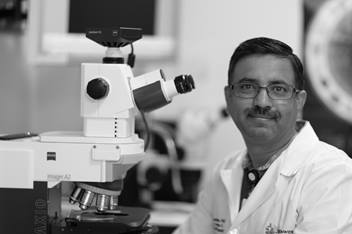Roberts Lab
Our lab focuses on understanding the interactions that occur between cancer cells and the "normal" tissues that surround them. We have currently chosen to focus primarily on the tumor-host interactions that occur when osteosarcoma cells spread to the lungs.
Evidence suggests that lung-derived signals facilitate the spread of these tumors from their origin in the bone to their primary site of metastasis, in the lungs--these tumors rarely develop metastases elsewhere. Identifying those signals important for lung colonization and metastatic growth can facilitate the development of therapies that target growth and spread of these cancers. A drug that prevents the spread of osteosarcoma to the lung would have potential to save as many as 70% of the lives lost to this disease. Moreover, pathways important for the spread of osteosarcoma may also be important in other cancers.
We address these research questions through a series of cell culture techniques (including co-culture of osteosarcoma cells with primary lung cells derived from human donor lungs) and animal modeling (including our growing library of xenograft models derived from tissues donated by patients and their families at the time of biopsy or resection). We utilize sophisticated single-cell transcriptomic analyses to study changes in gene expression that occur genome-wide within each of the different lung and tumor cell types and evaluate the importance of promising genes using virus-based systems that facilitate manipulation of gene expression. We vet candidate therapies through "mouse clinical trials" that test the effects of promising drug combinations on collections of tumor models developed from different patients.



